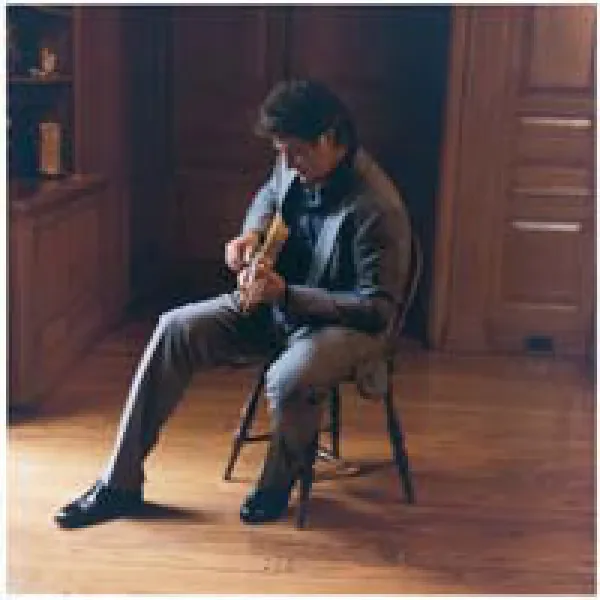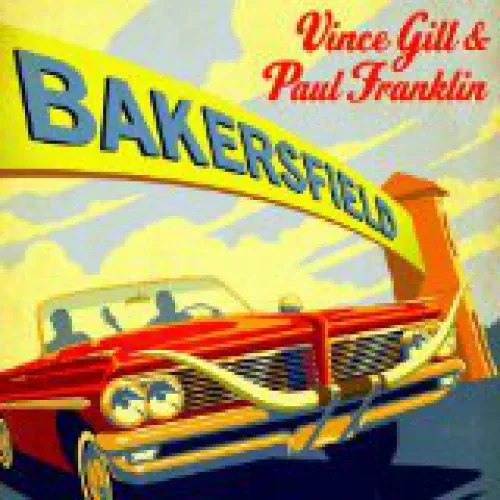
Vince Gill
Top Vince Gill albums
Top Vince Gill lyrics
Vince Gill biography
Vince Gill paid nearly a decade and a half of dues en route to becoming one of the most popular country stars of the '90s. Starting out as a bluegra** singer and multi-instrumentalist, he initially made his name with country-rockers Pure Prairie League, and spent the '80s as part of country's new traditionalist wing before finding ma**ive success as a contemporary country hitmaker. Gill had strong mainstream appeal, yet enough songwriting chops and grounding in tradition that he could maintain his artistic credibility without being branded a crossover-happy hack. That balance made him the kind of performer that awards ceremonies can feel good about honoring, and honor him they did -- Gill has won more CMA awards than any performer in history, and his 14 Grammys tie him with Chet Atkins for the most ever by a country artist.br /br /Vincent Grant Gill was born April 12, 1957, in Norman, OK. His father, a judge, played banjo and guitar, and Vince picked up both by his teen years; he later added fiddle, dobro, mandolin, and ba** to his repertoire. In high school, Gill played in the bluegra** band Mountain Smoke, which gained enough of a local reputation to open a concert for Pure Prairie League. Gill graduated in 1975 and moved to Louisville to join the band Bluegra** Alliance, with whom he stayed for a year. He then briefly played with Ricky Skaggs' Boone Creek outfit before setting out for Los Angeles, where he joined fiddler Byron Berline's group Sundance. In 1979, he accompanied a friend to audition for Pure Prairie League, mostly out of curiosity as to whether they remembered his high-school band, and they wound up hiring him as their lead singer. Gill recorded three albums with the band, helping them land a Top Ten pop hit with "Let Me Love You Tonight," and also began writing songs for them. He departed in 1981 to join Rodney Crowell's backing band, the Cherry Bombs, where he met Emory Gordy, Jr. and Tony Brown, both of whom would later produce his solo records. In 1982, he appeared on the David Grisman album Here Today, and the following year he landed a solo deal with RCA thanks to his connection with Brown. br /br /Gill, his wife Janis (nee Oliver, a member of the Sweethearts of the Rodeo), and their young daughter moved to Nashville. With Gordy producing, Gill issued his debut mini-album, Turn Me Loose, in 1984, with a style in keeping with his recent country-rock past. He notched his first charting country single with the minor Top 40 entry "Victim of Life's Circumstance," and the following year completed his follow-up, The Things That Matter. A duet with Rosanne Cash, "If It Weren't for Him," gave Gill his first Top Ten hit, and his next single, "Oklahoma Borderline," duplicated its predecessor's success. 1987's The Way Back Home gave Gill his biggest RCA hit in the Top Five "Cinderella." In the meantime, he also worked as a session guitarist, wrote songs for other artists, and toured with Emmylou Harris.br /br /In 1989, Gill left RCA to sign with MCA, where he reunited with Tony Brown, now a successful producer. Though he'd enjoyed some success in his own right, Gill wasn't really a star. That all changed with the release of his label debut, 1989's When I Call Your Name. A duet with Reba McEntire, "Oklahoma Swing," made the Top 20, but the title track was the true breakout hit, climbing to number two and winning Gill his first Grammy. Its follow-up, "Never Knew Lonely," hit number three, and the album went on to sell over a million copies. Perhaps partly as a result, Gill declined an offer from Mark Knopfler to become a full-time member of Dire Straits. Gill's follow-up album, 1991's Pocket Full of Gold, was another platinum smash, giving him four Top Ten singles in "Liza Jane," the title track, "Look at Us," and the number two smash "Take Your Memory With You." 1992's I Still Believe in You made Gill an outright superstar; the title ballad was an enormous hit that became his first number one single, and its follow-up, "Don't Let Our Love Start Slippin' Away," also topped the charts. The album took only a few months to go platinum, and still spun off more hits: two more number ones in "One More Last Chance" and "Tryin' to Get Over You," and the number three "No Future in the Past." Additionally, "The Heart Won't Lie," another duet with McEntire from her It's Your Call album, went to number one in 1993. Over the next few years, I Still Believe in You would sell over four million copies.br /br /Gill issued the stopgap holiday album Let There Be Peace on Earth in late 1993, and returned with When Love Finds You in 1994, which became his first album to break the pop Top Ten. It, too, sold over four million copies, and gave him five Top Five country hits: "What the Cowgirls Do," the title track, "Whenever You Come Around," "Which Bridge to Cross (Which Bridge to Burn)," and "You Better Think Twice." Gill was clearly a country hit factory by this point, but instead of coasting into the inevitable decline, he got more ambitious with his next project, 1996's High Lonesome Sound. Returning to his bluegra** roots, Gill crafted a tour of American roots-music styles that earned him some positive critical attention, even if overall reviews were mixed. It proved commercially potent as well, giving him several more hits, including the Top Fivers "Worlds Apart," "Pretty Little Adriana," and "A Little More Love." In 1998, Gill released his most universally acclaimed album, The Key, which was both a return to hardcore country and a chronicle of the breakup of his marriage to Janis Oliver. Although country radio shied away from its more traditional approach (save for the Top Five hit "If You Ever Have Forever in Mind"), it sold well, going platinum and becoming Gill's first album -- surprisingly -- to top the country charts.br /br /Rumors about Gill's relationship with pop singer and onetime Christian star Amy Grant proved to be true, and the couple married in early 2000. Gill's next album, Let's Make Sure We Kiss Goodbye, was largely a tribute to his new romance that many critics found overly sentimental. It gave him another Top Ten hit in "Feels Like Love," but it was uncharacteristically snubbed come Grammy time, despite securing four nominations. Gill returned to critical favor with his next outing, 2003's Next Big Thing, which marked the first time he produced an entire album on his own. ~ Steve Huey, All Music Guide

